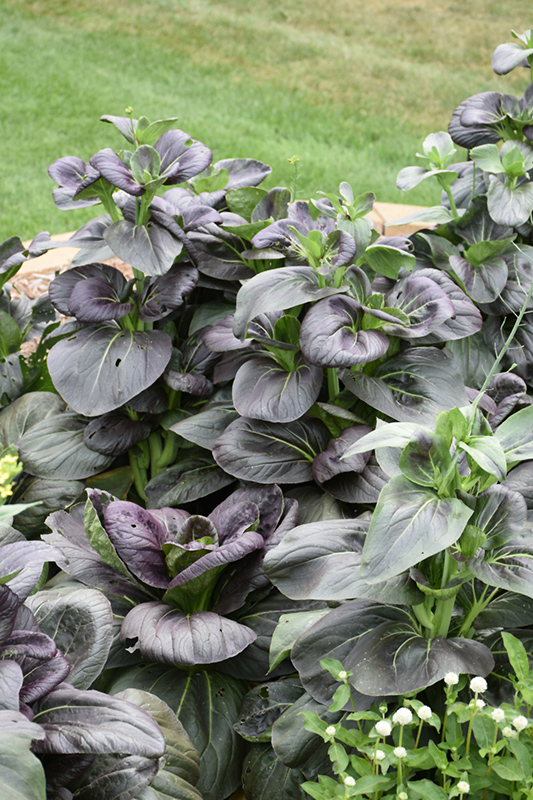Plant Finder
Tasty Pagoda Purple Pak Choi
Brassica rapa 'Tasty Pagoda Purple'
Height: 8 inches
Spacing: 2 inches
Sunlight:
![]()
Hardiness Zone: (annual)
Other Names: Chinese Cabbage, Bok Choy, Oriental Cabbage
Description:
Visually stunning, with edible dark purple leaves with light green veins and stalks; perfect for container growing or in the garden; summer mulch to prevent bolting; mild sweet flavor makes it a versatile vegetable; great sauteed and steamed
Edible Qualities
Tasty Pagoda Purple Pak Choi is an annual vegetable plant that is commonly grown for its edible qualities. The entire above-ground parts of the plant are edible, and can be harvested at any time in the season. The edible parts have a mild taste and a crisp texture.
The plant is most often used in the following ways:
- Fresh Eating
- Eating When Cooked/Prepared
- Cooking
Planting & Growing
Tasty Pagoda Purple Pak Choi will grow to be about 8 inches tall at maturity, with a spread of 8 inches. When planted in rows, individual plants should be spaced approximately 2 inches apart. This fast-growing vegetable plant is an annual, which means that it will grow for one season in your garden and then die after producing a crop.
This plant is typically grown in a designated vegetable garden. It should only be grown in full sunlight. It does best in average to evenly moist conditions, but will not tolerate standing water. It is not particular as to soil pH, but grows best in rich soils. It is somewhat tolerant of urban pollution. Consider applying a thick mulch around the root zone over the growing season to conserve soil moisture. This is a selected variety of a species not originally from North America.
Tasty Pagoda Purple Pak Choi is a good choice for the vegetable garden, but it is also well-suited for use in outdoor pots and containers. It is often used as a 'filler' in the 'spiller-thriller-filler' container combination, providing the canvas against which the larger thriller plants stand out. Note that when growing plants in outdoor containers and baskets, they may require more frequent waterings than they would in the yard or garden.




